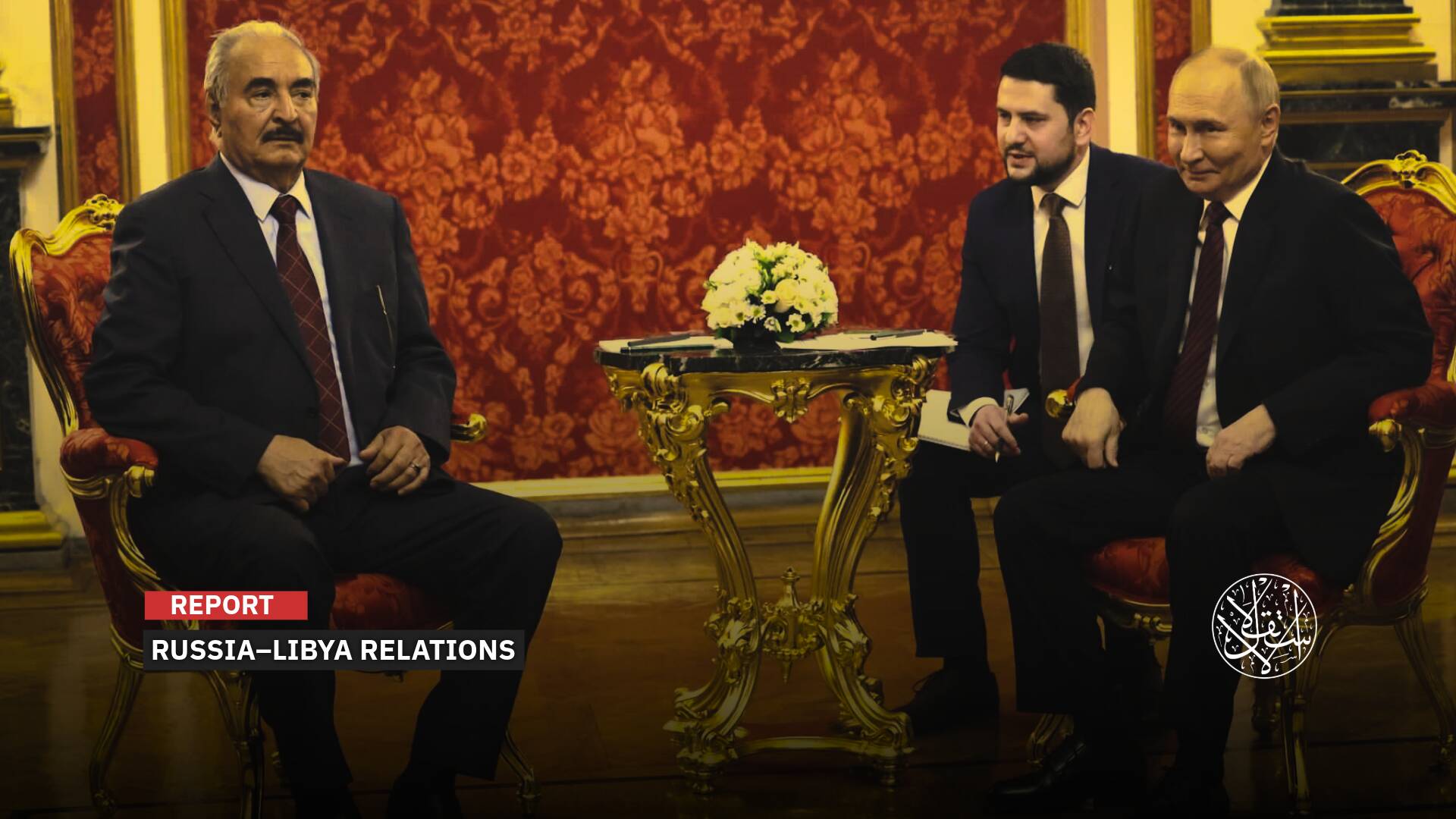Why Did Sisi Violate His Pledges to the IMF and Expand the Military Business?

However, on January 23, 2023, the first republican decision was issued after obtaining the loan to allocate nearly 4000 km of Egyptian territory on both sides of 31 main roads for the army.
Two days later, the army also seized, through the Ministry of Military Production and a coalition of companies loyal to the army and the UAE, the famous Zoo and Orman Gardens in Cairo, by a Republican decision also under the pretext of “development,” according to what was published in the Official Gazette on January 25, 2023.
Observers believe that the continuation of the President of the Egyptian regime, Abdel Fattah el-Sisi, in deepening the army generals’ control over business is linked to an equation related to the generals providing protection to his power in exchange for their control over the economy.
Another group attributes this approach to Sisi’s lack of confidence that the IMF plan would solve the worsening economic crisis, especially with the Gulf countries stopping pumping aid, and then his need to satisfy the army to ensure its protection against the people’s escalating anger.
Why Allocate Lands?
After the defeat of 1967, most of Egypt’s resources were allocated to the army under the pretext of “war effort.” Most of the country’s lands became in the hands of the army, despite the constitution’s text saying that all resources belong to the people.
This control was strengthened by decisions issued by former Presidents Anwar Sadat and Hosni Mubarak to allocate a large proportion of land to the army, most notably Sadat’s decision in 1977, which granted the army the privilege of managing all non-agricultural and uninvested lands.
It was estimated that this decision gave the army land areas amounting to 87% of Egypt, according to the Egyptian Institute for Studies on January 6, 2018.
Since the 2013 coup and the army’s business expanded obscenely, Sisi issued several decisions to allocate huge areas of Egypt’s land to the army within the framework of the military’s control over the Egyptian economy after excluding competitors.
It is believed that the last land that Sisi allocated to the army, on both sides of the roads, will be devoted to the generals’ business and the establishment of gas stations and restaurants.
This is similar to what was implemented on a large scale in all the roads of the Egyptian governorates through the Chill Out gas station series of the generals, which occupied the sidewalks and roadsides.
Before the final step, Sisi issued several decisions allocating land for the army, most notably in 2016, allocating desert lands with a depth of 2 kilometers on both sides of 21 roads for the benefit of the Ministry of Defense.
That decision stipulated that these lands should be considered strategic areas of military importance that may not be owned, according to Al-Shorouk newspaper on June 9, 2016.
On March 26, 2016, Middle East Eye stated that the military of Egypt owns between 80-90% of Egypt’s lands through several companies affiliated with the Egyptian army.

Warning Bells
Three international reports were issued at the same time, talking about the Egyptian army’s huge business and how Sisi will deal with it, unanimously agreeing that he will ignore what Egypt has committed to the IMF regarding army companies.
The first report was issued by the Malcolm H. Kerr Carnegie Middle East Center on January 24, 2023, by researcher Yezid Sayigh, in which he affirms that Sisi cannot ignore the economic role of the army forever, but he will not allow a chasm with the military establishment.
He expected Sisi to put the blame on his prime minister, Mustafa Madbouly, who has nothing to do with his affairs, and perhaps the news of the ministerial change leaked out every few weeks is the first step.
The second report, issued by Intelligence Africa on January 25, indicates that the army chiefs are angry with Sisi and that he is facing discontent among the generals because of their concern over his agreement with the IMF.
The report indicated that the generals are worried that Sisi will try to partially remove army companies from the economy.
He also stressed that Sisi might sacrifice his prime minister because he wants someone to share the blame for the repercussions of the economic policies that have intensified their impact, and getting rid of Madbouly may be his way to do so.
As for the third report, issued by The Economist on January 26, it revolves around the fact that “to save Egypt’s economy, get the army out of it.” The report stresses that there is no solution to the severe economic crisis currently hitting Egypt.
What Matters Is Paying
Sisi’s actions indicate that he is not complying with the demands of the IMF that he signed to obtain the latest loan and that he will circumvent the condition of removing the army from the economy, as happened in previous borrowing cases.
The IMF’s policy does not include any penalties for countries that violate their commitments because what matters to the Fund is the repayment of loans. Rather, its experiences with several countries, including Egypt, indicate that it encourages them to borrow more to implicate them.
The researcher, Yezid Sayigh, said that if the Fund tolerated Sisi’s manipulation of the army’s business, it is not certain that Egypt’s other foreign partners (the Gulf) would be as tolerant as the Fund.
He added that the army may not have to strain itself in order to preserve its economic interests, and it will originally evade the implementation of all its pledges to the IMF.
Sayigh explained that Sisi’s direct purpose was to secure the agreement with the International Monetary Fund, hoping, in particular, that this would open the door for Egypt to obtain $14 billion in additional loans and credits from other international sources.

However, Sisi’s speeches and official decisions over recent years reveal a radically different purpose: to capitalize on state-owned companies and assets (such as infrastructure) by injecting them with private funds while continuing state ownership of them (that is, those companies and assets).
Instead of selling shares or handing over control to private shareholders, Sisi is offering investors “a stable, bond-like return in existing and operating entities.”
The report issued by the International Monetary Fund and published on January 10, 2023, on its agreement with Egypt included 8 commitments made by the Sisi regime in its letter of intent, some of which have not been implemented.
The most prominent of these was decreasing the pound, raising fuel prices (not yet implemented), and slowing down so-called “national projects,” such as the Administrative Capital (not implemented).
The most important of these commitments is reducing the role of army companies in the economy, and addressing deep-rooted structural problems, such as the lack of transparency regarding the army’s role in the economy, by requiring army-owned companies to publish annual reports on tax expenditures, which seem like dreams that are difficult to achieve.
If the fund agreement is implemented, this will be one of the advantages because it implies the dismantling of the army’s economy, the cessation of financing imaginary projects, the end of direct assignment of projects to the army, and the monthly review.
Absent Transparency
However, Human Rights Watch and Democracy Now for the Arab World (DAWN) predicted that Sisi will not adhere to the issue of reducing the army’s business, according to a statement issued on January 31.
They stressed that although the fund agreement includes some steps to increase the transparency of state-owned assets and includes companies owned by the army, such as submitting semi-annual financial accounts to the Ministry of Finance, there are doubts about their implementation.
They noted that the Egyptian government failed under previous programs to reduce the army’s role in the economy or make it more clear.
They also warned that the new loan agreement concluded by the IMF with Egypt adopts an economic approach that would lead to a lack of transparency in the army’s business dealings and includes risks of corruption regarding the sale of state assets and property.
The two organizations spoke of the need to address the inherent mismanagement stemming from the government’s prioritization of its political control, including the military’s growing and unaccountable role in the economy.
They pointed out that the Egyptian government completely withheld from public opinion the financial transactions of the networks of companies belonging to the military apparatus, which mostly produce civilian goods.
This makes it vulnerable to corruption and undermines civilian oversight over the funding of the Egyptian army, which in turn is responsible for serious violations. The government has also used repressive measures to protect the army’s economic power.
The indications of Gulf reluctance to support the Sisi regime deepened Sisi’s wounds after he thought that it would come to his rescue, as always.
Gulf figures’ criticism of the Sisi regime showed that some Gulf states rejected the IMF’s recent calls to help Egypt, calling on what he described as Egypt’s Gulf allies to support Egypt.
The absence of the leaders of Saudi Arabia and Kuwait from the donor conference that was held in Abu Dhabi on January 18, which was called for by the President of the Emirates, Mohammed bin Zayed, made clear their refusal to provide grants and new urgent financial aid.
Sources
- Allocating land for the army in Egypt... Concerns over investment in light of "security reasons" [Arabic]
- Secretly signing a contract for the development of "The Animal" and "The Orman" [Arabic]
- Egypt: Risks of austerity and corruption in the “International Monetary Fund” rescue plan [Arabic]
- State Lands in Egypt: Who is the Owner? [Arabic]
- Sisi cannot forever ignore the military's economic role [Arabic]











